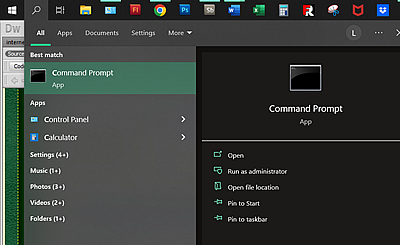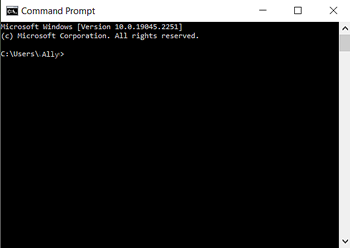Cyber Security:

IP Address
Your IP address is a number your Internet provider assigns to your computer. It’s something like the post code of your home.
On the down side, you can be tracked and monitored through your IP address.
 Your IP address gives away your computing location, at home or on the road. Governments and bad actors have tracked people down by their IP address, with the help of the person’s Internet Service Provider.
Your IP address gives away your computing location, at home or on the road. Governments and bad actors have tracked people down by their IP address, with the help of the person’s Internet Service Provider.
 Online businesses monitor activity coming from IP addresses - they may not know your name, but they know you like their website! Online companies and networks can (and do) restrict someone’s access to a website based on where the user is located. Your location is given away by your IP address.
Online businesses monitor activity coming from IP addresses - they may not know your name, but they know you like their website! Online companies and networks can (and do) restrict someone’s access to a website based on where the user is located. Your location is given away by your IP address.
 Hackers can break into networks and sometimes take over devices.
Hackers can break into networks and sometimes take over devices.
 What is my IP Address?
What is my IP Address?
You can find your IP address by doing the following:
 Click on the magnifying glass next to the windows icon on the control bar.
Click on the magnifying glass next to the windows icon on the control bar.
 Type in 'command prompt
Type in 'command prompt
'
 The following will then open up
The following will then open up

 Then type in:
Then type in:
ipconfig
 and press return
and press return
You will then be told what connections you have to the internet.
You will probably find that the first part of your IP address is 192.
192 is a decimal representation of a single byte of a four-byte IP-address.
The meaning of 192 in an IP-address depends on not only its value but also on its position; i.e. significant only as a first byte depending on what the value of the next byte is … for most times of the address space, “192” only signifies a decimal value of “192” (i.e. a hexadecimal value of “C0”)
 Looking up the IP address of a website
Looking up the IP address of a website
You can look up the details of a website address by using a ‘whois’ service.
For example, you could use the site https://whois.domaintools.com/ and type 'open.ac.uk' into the 'whois' search box.
In the details returned you can then see:
IP Address 137.108.200.90
Other details show that the domain belongs to The Open University.
The IP location is in Milton Keynes, England, and is hosted on an Apache server.
See here about 'Hiding your IP Address'


 What is my IP Address?
What is my IP Address? 



